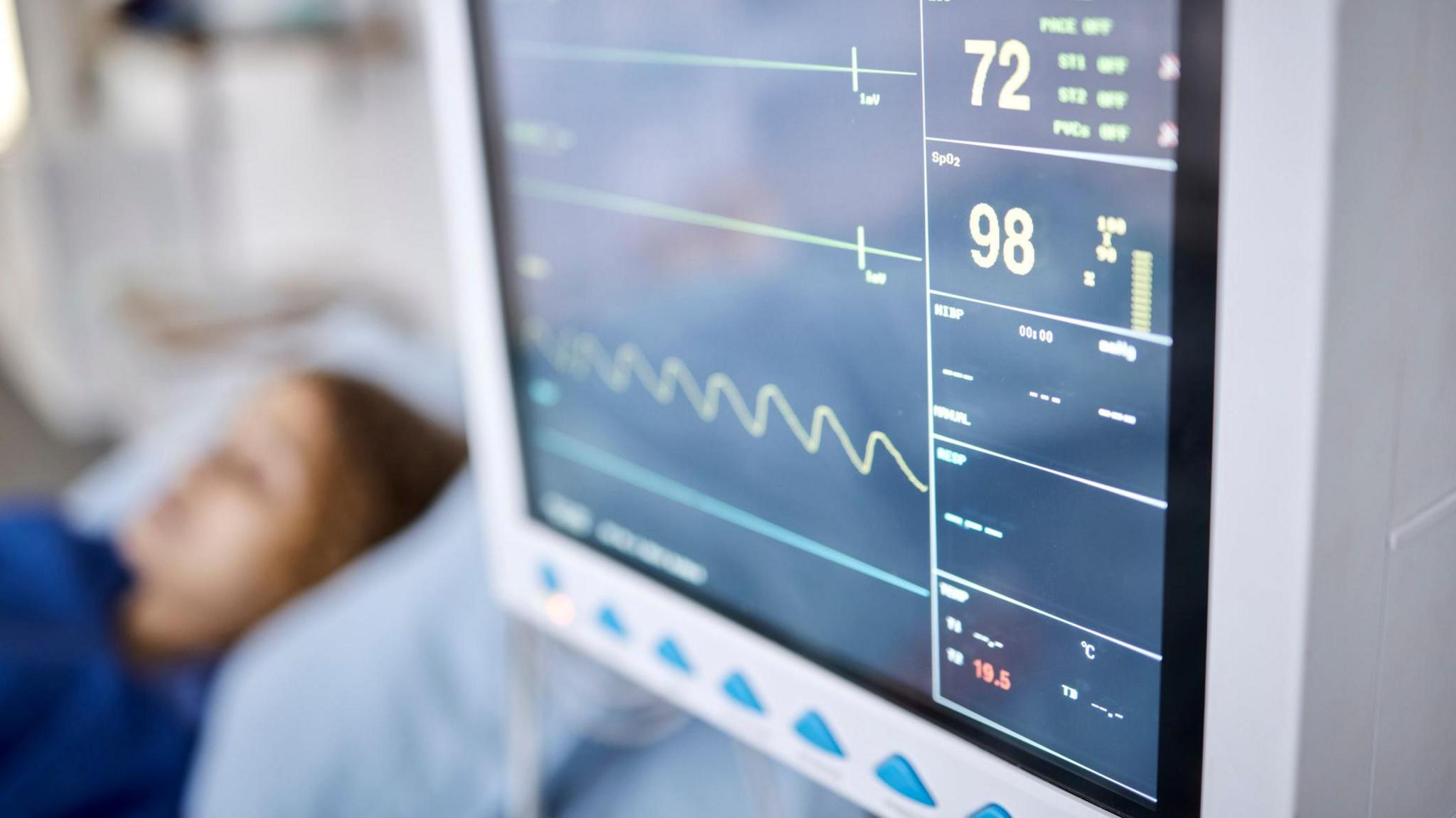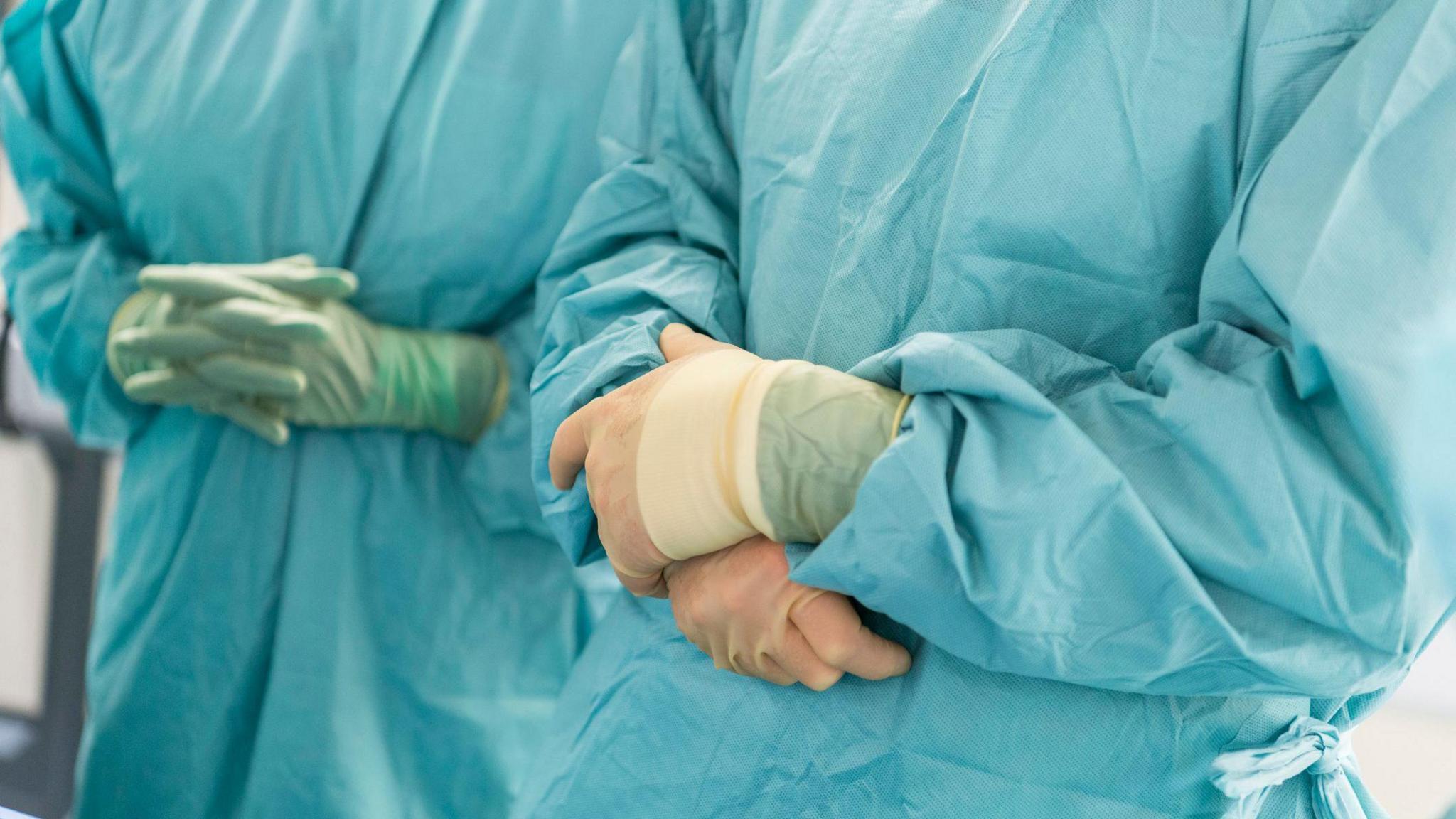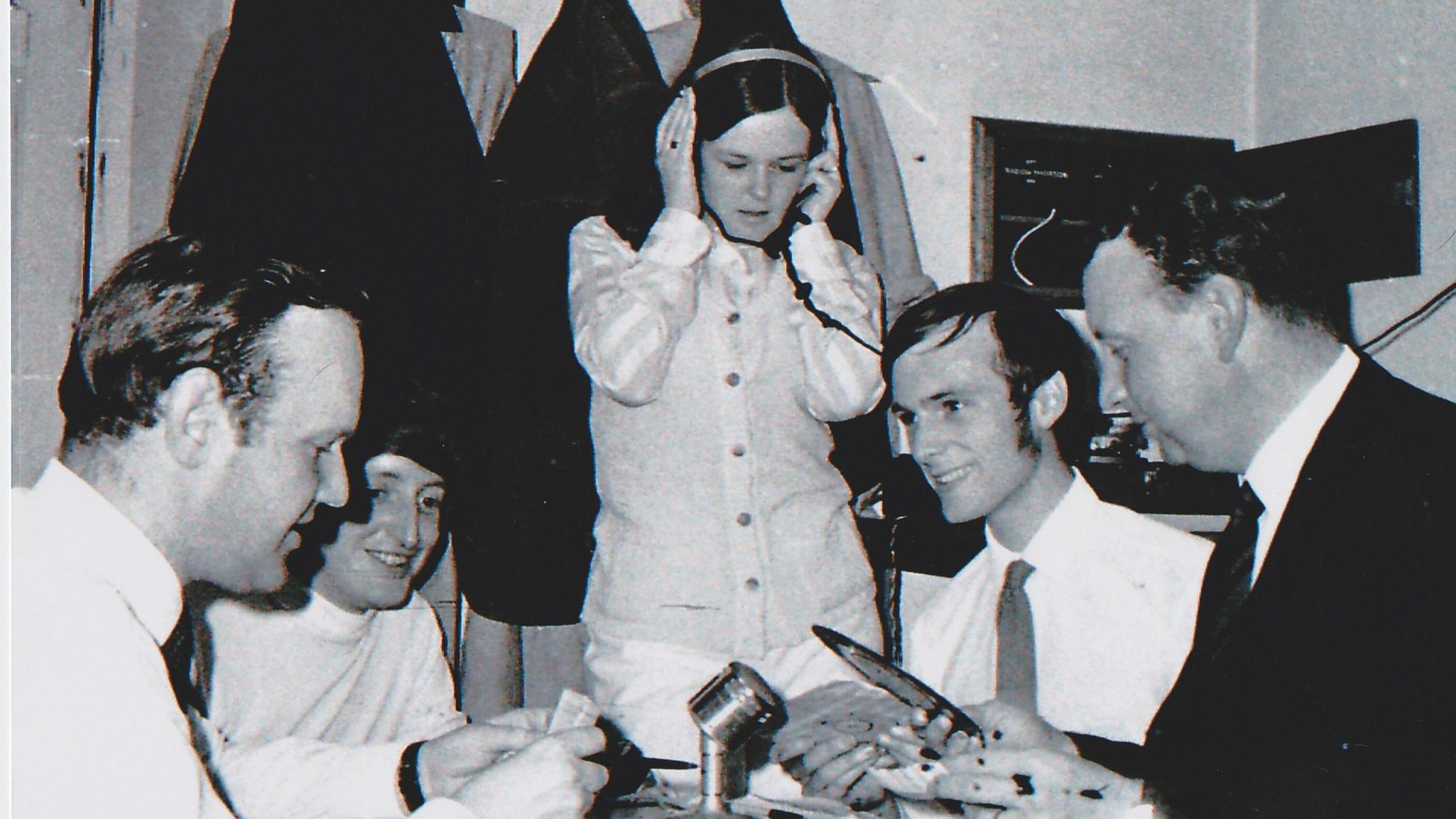'Life-saving' heart device pioneered by hospital

The implants are used in people thought to be at risk of cardiac arrest
- Published
A new type of device for treating serious heart conditions is being pioneered by a hospital.
Patients at the John Radcliffe Hospital in Oxford have been fitted with the implantable cardioverter defibrillator (ICD) for the first time.
Placed under the skin and soft tissue in the chest, the small implant can deliver a "life-saving" electric shock should a patient go into cardiac arrest, the hospital said.
Unlike previous ICDs, it does not need to be put inside the heart or great veins, making it potentially safer to remove if necessary.
Instead, the wire which allows the heart and device to communicate is located behind the breastbone.
The monitors are mainly used in survivors of cardiac arrest and people with certain heart conditions, according to Oxford University Hospitals NHS Foundation Trust (OUH).
Consultant cardiologist Dr Julian Ormerod said the device could be particularly beneficial to people with hereditary heart conditions, who require treatment at a younger age.
Follow BBC South on Facebook, external, X (Twitter), external, or Instagram, external. Send your story ideas to south.newsonline@bbc.co.uk, external or via WhatsApp on 0808 100 2240, external.
Related topics
- Published15 July 2024

- Published16 July 2024

- Published13 July 2024
